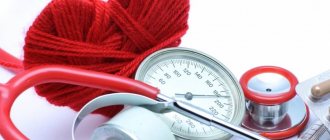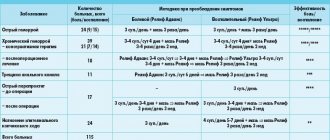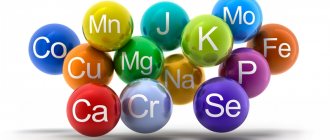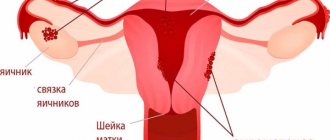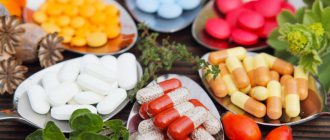August 1, 2011
Selenium is a powerful antioxidant that stimulates the thyroid gland, improves immunity and human reproductive functions.
Selenium got its name from Earth's moon, the moon, almost two centuries ago. Using its compounds, modern lasers, gamma radiation sources and complex devices are created.
Selenium itself is a strong poison, but the human body still needs it in microscopic doses - as an antioxidant and an important factor in the normal functioning of the immune and hormonal systems.
Why is it needed?
Along with vitamins C and , selenium is a powerful antioxidant. It protects the body's cells from the action of free radicals - aggressive fragments of molecules. Selenium is part of special proteins - selenoproteins
, which are part of enzymes that fight free radicals.
Selenium is necessary for the proper functioning of the thyroid gland.
It helps the enzyme responsible for converting the main hormone of the gland, thyroxine,
into a biologically active form that directly affects metabolism.
Thyroxine increases a person’s physical and mental activity, promotes the growth and development of all body tissues, and even activates metabolism and prevents fat deposition. Another important function of selenium is maintaining the human reproductive system in working order. Selenium, together with zinc, allows male reproductive cells - sperm
- to maintain optimal mobility. Selenium, like folic acid, reduces the likelihood of miscarriage. And these substances protect the embryo from a defect in the development of the neural tube, which leads to the birth of babies with an underdeveloped spine. Selenium has a stimulating effect on the immune system. Research results indicate that it increases the body's resistance to many diseases.
What foods contain selenium?
Selenium, like any other mineral or vitamin, is best obtained from food.
Products that provide selenium into the body are quite diverse. Among them:
- Brazil nuts. Literally 6-8 nuts contain about 540 mcg of selenium. But this indicator is quite arbitrary, since one study in the scientific journal Chemosphere showed that the concentration of the mineral varies widely depending on the region in which they grew. In general, it is enough to consume them only 1-2 times a week to saturate the body with enough selenium.
- Fish and seafood. Total 48 gr. sardines contain 46% of the daily value of selenium, 85 g. tuna – 167%, 160 gr. halibut – 171%, 85 gr. oysters – 238%. Shrimp, salmon and crab contain 40 to 65 mcg.
- Meat and poultry. Less than 100 gr. ham contains 42 mcg of selenium, pork and beef - about 33 mcg, chicken - from 22 to 25 mcg, turkey - 31 mcg.
- Dairy products. One cup of cottage cheese contains about 20 mcg of selenium; the same container of milk and yogurt will provide the body with 8 mcg.
- Eggs. Two large eggs provide 56% of the daily value of the mineral.
- Brown rice One cup of cooked long-grain brown rice provides 19 mcg of selenium, or 27% of the recommended daily value.
- Mushrooms. Total 100 gr. mushrooms contain about 12 mcg.
- Chia seeds. In 100 gr. The product contains 53 micrograms of selenium.
- White bread. One slice contains 10 mcg.
- Seeds. They are rich in vitamins and minerals, including selenium. One handful contains 27% of the daily value. In addition, sunflower seeds are an excellent source of dietary fiber and vegetable protein.
Do not forget that during heat treatment the content of this microelement in seafood decreases. The greatest benefit will come, for example, from freshly caught tuna tartare. Be sure to keep raw fish and seafood fresh.
What other foods contain selenium? It can also be found in wheat bran, wheat and corn.
How many do you need?
The daily requirement of an adult for selenium is approximately
50 mcg. Children under one year old need significantly less of this substance - about 20 mcg.
But, since selenium is toxic in large doses
, experts do not recommend consuming more than 400 mcg per day.
The upper limit for infants is 45 mcg per day. This mainly applies to those who receive selenium in the form of vitamin and mineral preparations or dietary supplements. Along with food, an overdose of selenium can only be obtained in those areas where the soil is oversaturated with it. Russia is one of the regions experiencing selenium deficiency.
Selenium and the thyroid gland
The thyroid gland contains the largest amount of selenium per 1 gram of tissue compared to other organs and systems of the body.
For the synthesis of thyroid hormones, processes of iodination of tyrosine amino acid residues in the thyroglobulin molecule are necessary - this occurs on the apical membrane (or near it) under the action of the enzyme thyroid peroxidase - and the presence of hydrogen peroxide (H2O2) is a prerequisite.
The formation of H2O2 is potentially dangerous for thyrocytes (thyroid cells) and is believed to be regulated by TSH (thyroid-stimulating hormone) through intracellular messengers that trigger complex cascade processes.
We recommend
“Microelements in the body: consumption standards and methods of replenishing the deficiency” Read more
In the absence of TSH, the secretion of glutathione peroxidase (namely type 3) at the apical pole of the thyrocyte leads to a decrease in the concentration of peroxide through its decomposition to water molecules. On the contrary, in the presence of thyrotropin, the formation of this antioxidant enzyme decreases and, as a result, the amount of H2O2 available to thyroid peroxidase increases and iodination reactions occur.
With a lack of selenium and iodine in the diet, another very important microelement, a fairly common endemic disease develops - myxedematous cretinism. It is accompanied by thyroid atrophy and leads to mental retardation.
Iodine
- a necessary substrate for the synthesis of thyroid hormones. Accordingly, with a decrease in its concentration in the body, a decrease in the synthesis of thyroxine and triiodothyronine is observed. This, through a negative feedback mechanism, leads to increased secretion of TSH by the pituitary gland, which, as previously mentioned, increases the formation of hydrogen peroxide. The observed selenium deficiency affects a decrease in the activity of glutathione peroxidase.
Impaired neutralization of peroxide causes cell destruction and fibrosis - the latter occurs due to the active release of transforming growth factor beta by macrophages, which blocks the division of epithelial cells and stimulates the proliferation of connective tissue fibroblasts. All these mechanisms, the authors believe, are triggered immediately after birth and lead to the rapid destruction of thyroid tissue.
At the same time, against the background of developing hypothyroidism, the activity of type 2 deiodinase in the brain increases to maintain a locally normal concentration of triiodothyronine, necessary for neurological and mental development.
Thus, we draw your attention to the fact that replenishing selenium reserves without first eliminating iodine deficiency only worsens symptoms.
In addition, it should also be noted that the deiodinase of the thyroid gland contains selenocysteine (that is, in the structure of the amino acid cysteine, sulfur is replaced by selenium) - and in many people this transformation is impaired, which entails insufficiency of the function of the organ itself.
New research also emphasizes the need for selenium supplementation in autoimmune thyroid diseases: for example, patients with Hashimoto's disease and pregnant women with antibodies to thyroid peroxidase (TPO) showed a decrease in the level of specific immunoglobulins and an overall improvement in the ultrasound structure of the organ. Moreover, the risk of postpartum thyroiditis was significantly reduced.
Research
: Selenium and the thyroid gland: more good news for clinicians, Selenium - impressive results and prospects for use
What if it's not enough?
A lack of selenium leads to a decrease in the body's defense against free radicals. This causes the development of rheumatoid arthritis and cardiovascular diseases.
Selenium deficiency impairs the functioning of the thyroid gland, which leads to a slower metabolism and increased body weight. Selenium deficiency is often one of the causes of infertility in men caused by low sperm quality. Selenium deficiency occurs with excessive consumption of carbohydrates. Fast carbohydrates found in refined foods, desserts and sweet soda can destroy selenium. In addition, vegetarians who consume foods made with dehulled grains may experience serious selenium deficiency. The absorption of selenium deteriorates with gastrointestinal diseases and constant consumption of laxatives and dietary supplements to “cleanse the body.” In addition, those who are fond of canned food and concentrates do not receive enough selenium - in them this element is destroyed during long-term processing.
The role of selenium in the human body
- Antioxidant protection
- is part of the following enzymes:
- Glutathione peroxidase - consists of 4 subunits, each of which contains a selenium atom in the form of selenocysteine. The task of this enzyme is to catalyze the synthesis of glutathione, the main protector of the body (especially fatty acids, red blood cells, hemoglobin, membranes, and DNA) from the destructive effects of peroxides.
- Glutathione reductase - catalyzes the conversion of the oxidized form of glutathione into the reduced form and thereby prevents the development of oxidative stress.
- Thioredoxin reductase - reduces thioredoxin, a low molecular weight protein that can also resist oxidative stress. Mice with increased expression showed greater resistance to inflammatory processes, as well as a longer lifespan.
- Inhibits apoptosis
(programmed cell death) through complex stepwise biochemical reactions.
- Participates in the conversion of thyroxine (T4),
thyroid hormone, into the metabolically more active
triiodothyronine (T3)
, part of deiodinase.Changes in the functioning of the thyroid gland as a result of insufficient selenium intake can lead to worsening mood, behavioral and cognitive dysfunction.
- Slows down the aging process.
- Reduces symptoms that occur during menopause.
- Shows synergism and enhances the effect of vitamin E
— their combination showed more effective results in protecting mitochondria, cytochromes, and microsomal membranes.
- Selenium is also used in HIV therapy
— taking 20 mcg of the drug for 9 months was associated with suppression of the virulence of the virus, as well as an increase in the number of T-helper cells (remember, they are the ones targeted by the barrel of the gun in this disease).
- Promotes normal course of hematopoietic processes
(controls oxidative stress during erythropoiesis, and also, as part of selenoproteins, affects several stages of erythroid development).
Study
: Selenium Status and Hemolysis in Sickle Cell Disease Patients
Study
: Supplementation of Micronutrient Selenium in Metabolic Diseases: Its Role as an Antioxidant
The most important
Selenium is a powerful antioxidant that stimulates the thyroid gland, improves immunity and human reproductive functions.
In large doses, selenium is toxic, but the amount of this microelement necessary for health can be obtained from seafood, meat, unrefined grains and even mushrooms. Illustration: Muy Yum Tags:
- Antioxidants
- Pregnancy
- Avitaminosis
- Meat
- Thyroid
- Seafood
- Immunity
- Reproductive system
- Dictionary
To leave a comment you must be an authorized user
Daily value of selenium
How much selenium should you take? In this case, it is especially important to know the correct dosage, since an excess of this trace element can be harmful to health, since selenium is toxic.
Thus, the daily norm depends on age:
- Toddlers need 20 mcg/day.
- Children (4 to 8 years old) - 30 mcg/day.
- Children (9 to 14 years old) - 40 mcg/day.
- Adults (over 15 years old) - 55 mcg / day.
- Pregnant women - 60 mcg/day.
- Breastfeeding women - 70 mcg/day.
The recommended dose includes the total amount of selenium you should get from food and any supplements. Most people can get their selenium intake from food.
Online training in Anti-Age medicine Learn the intricacies of anti-aging medicine from anywhere in the world.
For the convenience of doctors, we have created the Anti-Age Expert online training platform: Lectures from our educational programs are consistently posted here, and are accessible 24/7. Doctors can study the materials as many times as necessary, ask questions and discuss interesting clinical cases with colleagues in special chats. Find out more
Selenium deficiency
Selenium deficiency is rare among healthy people. But some health conditions, such as HIV, Crohn's disease and others, are associated with low levels of this trace mineral. People who are fed intravenously also tend to be deficient in selenium. Doctors sometimes recommend that people with these conditions take selenium supplements.
Selenium has also been studied for the treatment of dozens of conditions. These range from asthma to arthritis, from dandruff to infertility. However, the results are not always convincing.
Interaction of selenium with other drugs
Selenium reduces blood clotting (therefore, planned surgery is a contraindication), so it should be used with caution with drugs with similar effects, aspirin, heparin, and others.
Taking selenium in combination with beta-carotene, vitamin E, and vitamin C can reduce the effectiveness of cholesterol-lowering medications. This compound also reduces the effectiveness of niacin, which is taken to increase good cholesterol levels.
Selenium can enhance the effect of sedatives (barbiturates), which is not always desirable.
Selenium applicability table
- Asthma 100 mcg/day Asthma involves damage to the body from exposure to free radicals, and selenium can protect the body from their effects. In one experiment, sodium selenite supplementation improved symptoms in patients with asthma.
- Atherosclerosis 100 mcg/day Some doctors recommend selenium supplements for people with atherosclerosis, which reduces the mortality rate from heart disease.
- Colon cancer 200 mcg/day Selenium is believed to be effective in the prevention of cancer, including colon cancer.
- Depression 100 mcg/day Selenium deficiency may contribute to depression. Compensating for selenium deficiency through dietary supplementation may help treat depression.
- Dermatitis herpetiformis 200 mcg/day Selenium and vitamin E supplements are effective in the treatment of skin diseases, including dermatitis.
- Edema 230 mcg/day Patients with lymphedema of the arms or head area who were treated with products containing selenium found a decrease in swelling.
- Heart attack 100-200 mcg/day Selenium supplements are effective for the prevention and treatment of cardiovascular diseases, including heart attack.
- AIDS (HIV) Under medical supervision: 400 mcg/day Selenium supplementation may lead to a reduction in infections and improve appetite.
- Immunity 100 mcg/day and 20 mg zinc Selenium improves immune function.
- Infections 100 mcg/day and 20 mg zinc By improving the functioning of the immune system, selenium helps fight infections.
- Lung cancer 200 mcg/day According to numerous studies, selenium has antitumor properties and is effective in the prevention and treatment of oncological diseases, including lung cancer.
- Male Infertility 100 mcg/day In a study of infertile men with reduced sperm motility, selenium supplementation significantly increased sperm motility.
- Osgood Schlatter's disease 150 mcg/day and 400 IU vitamin E A complex of vitamin E and selenium may be effective in the treatment of Osgood Schlatter's disease.
- Pancreatic insufficiency 600 mcg, under the supervision of a healthcare professional Taking antioxidant supplements such as selenium may relieve pain and prevent recurrences of pancreatitis.
- Phenylketonuria Adolescents and adults: 55 mcg/day; children: 15-40 mcg/day When treating Phenylketonuria, it is necessary to adhere to a low-protein diet, which in turn leads to a deficiency of selenium, which the body receives from animal foods. Thus, patients with Phenylketonuria need pharmaceutical support with selenium.
- Prostate cancer 200 mcg/day According to numerous studies, selenium has an antitumor effect. Supplementation with this nutrient may reduce the risk of prostate cancer.
- Rheumatoid arthritis 200 mcg/day Patients with rheumatoid arthritis have lower selenium levels than healthy people. Selenium supplements can reduce joint pain and inflammation.
- Changes in PAP smear As recommended by a doctor Low selenium levels have been seen in women with cervical dysplasia.
- Age-Related Dementia Doctor Recommended One study of patients with mild cognitive impairment and low selenium levels found improved cognitive function when they included selenium-rich Brazil nuts in their diet.
- Arrhythmia If recommended by a physician, selenium may be effective in treating arrhythmia.
- Cardiomyopathy According to the doctor's recommendation, selenium deficiency is considered to be the cause of one of the forms of Cardiomyopathy, so eliminating this deficiency is one of the most important elements of therapy.
- Children's diseases As recommended by a doctor, Selenium supports a healthy immune system and helps fight viral infections.
- Down Syndrome Doctor Recommended Preliminary studies have shown that antioxidant activity in the body improves when children with Down syndrome take selenium.
- Mouth and gum diseases Spray containing 3.7% citronella every morning for 6 days a week Selena is often recommended by doctors to prevent and treat periodontitis.
- Hepatitis 100 mcg/day In one trial, a combination of alpha lipoic acid, silymarin and selenium resulted in significant improvements in liver function and overall health in people with hepatitis C.
- High Cholesterol Doctor Recommended A double-blind study found that in people with moderately elevated cholesterol levels, selenium supplementation in the form of selenium-fortified yeast resulted in a small but statistically significant reduction in serum cholesterol.
- Hypothyroidism According to the doctor's recommendation, Selenium plays an important role in the metabolism of thyroid hormones.
- Cirrhosis of the Liver As Recommended by a Doctor People with cirrhosis of the liver often have low selenium levels and a greater need for antioxidants. In one study, selenium supplements improved liver function in patients with alcoholic cirrhosis.
- Macular Degeneration As recommended by a physician, selenium protects against oxidative stress and may reduce the risk of macular degeneration.
Background: green - scientifically proven, orange - insufficient evidence, White - no research done
The most popular selenium supplements
Now Foods, Selenium, 100mcg, 250 Tablets 12,637 Reviews Price: $8.76
Solgar, selenium, yeast-free, 100 mcg, 100 tablets Reviews: 8653 Price: $6.79 Economy shipping!!!
Natures Way, Selenium, 200 mcg, 100 capsules Reviews: 6904 Price: $6.48 Economy shipping!!!
21st Century, Selenium, 200 mcg, 60 capsules Reviews: 4738 Price: $3.72 Economy shipping!!!
Jarrow Formulas, Selenium Synergy, 60 capsules Reviews: 1366 Price: $10.16 Economy shipping!!!
Indications for taking Selenium
useful to read at hvastik.com Zinc... and
Selenium deservedly bear the name “microelement of longevity”. Its action is aimed at preventing strokes and heart attacks, it helps the body resist infections and diseases. The following indications are considered common for the use of selenium:
- heart vascular diseases,
- atherosclerosis,
- prevention of cancer such as prostate, stomach, throat and skin cancer,
- rheumatoid arthritis,
- macular degeneration,
- infertility,
- chronic fatigue syndrome,
- eliminating some side effects of chemotherapy,
The sufficient presence of vitamin E in the human body helps the microelement to be better absorbed. The cooperation of these substances contributes to the enhanced effect of selenium. Conversely, consuming large quantities of sugar-containing products, and in particular confectionery, makes it difficult to absorb it. Also, some types of medications, especially Paracetamol, prevent its full penetration.
